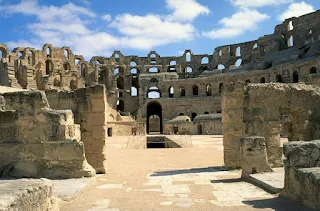Strange Funeral Practices: The Rituals of Death
In ancient Greece, funerary practices varied greatly and often included peculiar rituals. One such custom was the use of "Charon's obol," a coin placed in the mouth of the deceased. This coin was meant to pay Charon, the ferryman who transported souls across the River Styx to the afterlife. Additionally, the Greeks practiced "prothesis," where the body was laid out for public viewing, and "ekphora," a procession to the burial site. These rituals reflected the Greeks' beliefs in the afterlife and the importance of honoring the dead.
The Oracle of Delphi: Mysticism and Prophecy
The Oracle of Delphi was one of the most mysterious and revered institutions in ancient Greece. Located at the Temple of Apollo, the Oracle was believed to deliver prophecies through a priestess known as the Pythia. These prophecies were often cryptic and open to interpretation. The process involved the Pythia inhaling vapors from a chasm beneath the temple, which were thought to induce a trance-like state. This practice highlights the ancient Greeks' fascination with mysticism and the supernatural.
Peculiar Athletic Competitions: The Ancient Olympics
The ancient Olympics were not just about physical prowess; they also included some unusual events. One such competition was the "hoplitodromos," a race in which athletes ran in full armor, including a helmet and shield. This event tested not only speed but also endurance and strength. The ancient Greeks also held "pyrrhichios," a war dance performed by armed dancers, blending athleticism with martial training. These events reveal the Greeks' emphasis on preparing for war and celebrating physical fitness.
Unique Dietary Habits: The Greek Diet
The diet of ancient Greeks included some unusual foods and practices. For example, they enjoyed a condiment called "garum," a fermented fish sauce that was popular across the Mediterranean. Another curious habit was their consumption of "kykeon," a barley-based drink often mixed with water, wine, and herbs, which played a role in religious rituals such as the Eleusinian Mysteries. These dietary habits illustrate the diversity and cultural significance of food in ancient Greek society.
Oddities in Greek Art and Mythology
Greek art and mythology are rich with bizarre and fantastical elements. The depiction of mythological creatures such as centaurs, satyrs, and the Minotaur showcases the Greeks' imaginative storytelling. The ancient Greeks also believed in a wide array of gods and demigods, each with their own peculiar attributes and stories. For example, the god Pan, known for his goat-like appearance and association with nature, was both revered and feared. These mythological tales and artistic representations reflect the complex and often whimsical worldview of the ancient Greeks.
Conclusion
The bizarre world of ancient Greece offers a captivating look into a civilization that was both advanced and eccentric. From strange funeral practices and mystical oracles to unique athletic competitions and dietary habits, the ancient Greeks had a rich cultural tapestry filled with oddities and curiosities. These aspects of Greek life not only provide insight into their society but also remind us that even in ancient times, human cultures were diverse and multifaceted. Exploring these unusual elements helps us appreciate the complexity and creativity of the ancient Greeks, whose legacy continues to influence us today.
 |
 |
 |
 |
See More Ancient Pictures |






0 Comments